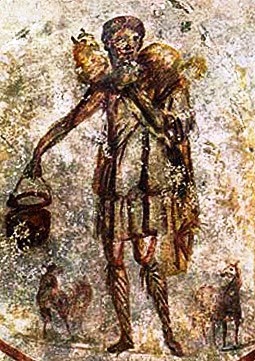It is not a little remarkable, that, though, historically speaking, the fourth century is the age of doctors, illustrated, as it was, by the saints Athanasius, Hilary, the two Gregories, Basil, Chrysostom, Ambrose, Jerome, and Augustine, and all of these saints bishops also, except one, nevertheless in that very day the divine tradition committed to the infallible Church was proclaimed and maintained far more by the faithful than by the Episcopate. Here, of course, I must explain: in saying this, then, undoubtedly I am not denying that the great body of the Bishops were in their internal belief orthodox; nor that there were numbers of clergy who stood by the laity, and acted as their centres and guides; nor that the laity actually received their faith, in the first instance, from the Bishops and clergy; nor that some portions of the laity were ignorant, and other portions at length corrupted by the Arian teachers, who got possession of the sees and ordained an heretical clergy;- but I mean still, that in that time of immense confusion the divine dogma of our Lord's divinity was proclaimed, enforced, maintained, and (humanly speaking) preserved, far more by the "Ecclesia docta" than by the "Ecclesia docens".
John Henry Newman, On Consulting the Faithful in Matters of Doctrine, 1859.




